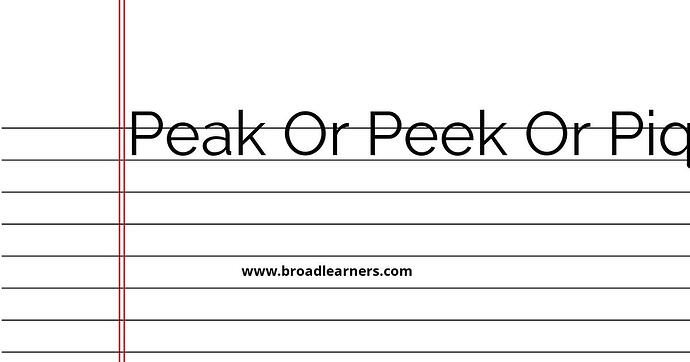'Peak', 'peek', and 'pique' are commonly confused words in English grammar. Understanding the difference between 'peak', 'peek', and 'pique' is important to use them correctly in written and spoken English.
'Peak' is a noun that refers to the highest point or summit of something, such as a mountain or a person's performance or achievement. It can also be used as a verb to mean reaching the highest point or reaching a maximum level.
'Peek' is a verb that means to take a quick or secret look, often by lifting or lowering something to see what is hidden or not easily visible.
'Pique' is a verb that means to arouse or stimulate someone's interest, curiosity, or resentment.
Let's take a closer look at the meanings and usage of 'peak', 'peek', and 'pique'.
| 'Peak' | 'Peek' | 'Pique' |
|---|---|---|
| The word 'peak' is used as a noun to refer to the highest point or summit of something. It can also be used as a verb to mean reaching the highest point or reaching a maximum level. | The word 'peek' is a verb that means to take a quick or secret look, often by lifting or lowering something to see what is hidden or not easily visible. | The word 'pique' is a verb that means to arouse or stimulate someone's interest, curiosity, or resentment. |
|
|
|
To remember the difference between 'peak', 'peek', and 'pique', it can be helpful to associate each word with its specific meaning:
- Peak: Think of the highest point or summit.
- Peek: Think of a quick or secret look.
- Pique: Think of arousing interest, curiosity, or resentment.
Here are some examples of correct usage:
- I reached the peak of the mountain.
- I took a peek at the surprise party decorations.
- Her comment piqued my interest in the topic.
Remembering the correct usage of 'peak', 'peek', and 'pique' will improve your grammar and communication skills.
